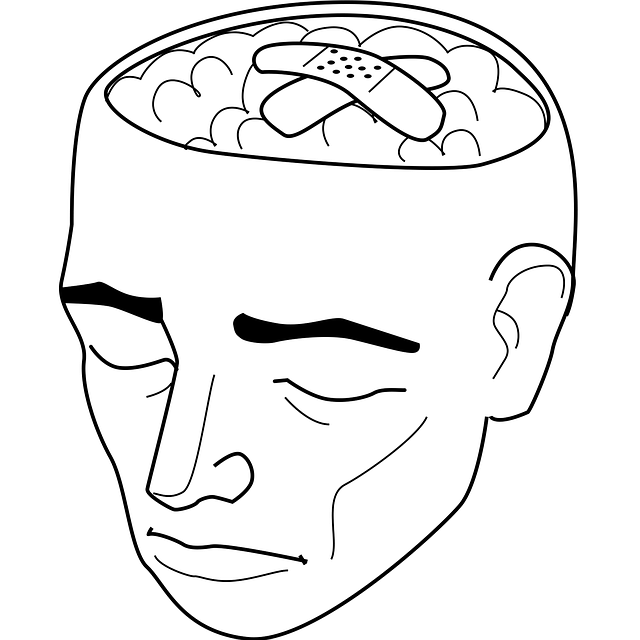Louisville's Crisis Intervention Team (CIT) programs are transforming adolescent and teen therapy by providing specialized mental health crisis support. These teams, through evidence-based interventions, de-escalate high-risk situations and promote long-term positive mental health outcomes. Training lay rescuers in recognizing warning signs and providing assistance, CIT empowers early intervention and self-care routines. Louisville's comprehensive CIT training programs focus on self-awareness, confidence building, cultural sensitivity, and community outreach, preparing teams to support diverse youth. Tailored local training, open communication, and regular workshops ensure successful integration of CIT into Louisville Adolescent and Teen Therapy, fostering a collaborative environment for effective crisis intervention and improved teen well-being.
In Louisville, adolescent and teen therapy benefits significantly from Crisis Intervention Team (CIT) training programs. This article delves into the crucial role CITs play in addressing mental health crises among young people. We explore key components of effective training, including crisis assessment, de-escalation techniques, and team collaboration. Additionally, we discuss implementation strategies and challenges encountered in Louisville’s teen therapy context, offering insights for enhancing crisis intervention services locally.
- Understanding Crisis Intervention Teams: Their Role and Impact in Louisville's Adolescent and Teen Therapy
- Key Components of Effective Crisis Intervention Team Training Programs
- Implementation and Challenges: Strategies for Successful Training in Louisville's Teen Therapy Context
Understanding Crisis Intervention Teams: Their Role and Impact in Louisville's Adolescent and Teen Therapy

In Louisville, the Crisis Intervention Team (CIT) plays a pivotal role in adolescent and teen therapy, offering specialized support for young individuals facing mental health crises. These teams are designed to de-escalate high-risk situations, providing immediate care and evidence-based interventions that can significantly impact long-term mental health outcomes. The CIT model is particularly beneficial for Louisville’s Adolescent and Teen Therapy services, ensuring a more responsive and comprehensive approach to youth in distress.
By training lay rescuers or peer support specialists, CIT programs empower individuals to recognize warning signs of crises and provide effective assistance. This community-based initiative promotes early intervention, which is crucial for managing escalating mental health issues. Moreover, it encourages self-care routine development for better mental health, addressing a critical aspect of overall well-being. With increased Anxiety Relief and Mental Health Awareness, Louisville’s adolescent population can receive more timely and compassionate care, setting the foundation for healthier futures.
Key Components of Effective Crisis Intervention Team Training Programs

Effective crisis intervention team training programs are multifaceted, aiming to equip participants with a comprehensive set of skills for handling crises. At Louisville Adolescent and Teen Therapy, we emphasize key components that form the backbone of our training. Firstly, Self-Awareness Exercises are integral to fostering empathy and understanding among team members. These exercises help individuals recognize their emotions and triggers, enabling them to respond calmly in high-pressure situations.
Secondly, building Confidence Boosting strategies within the training curriculum is crucial. Crisis intervention often demands quick thinking and decisive action. Through role-playing scenarios and constructive feedback, participants learn to trust their instincts and make confident decisions that contribute to effective crisis resolution. Additionally, a robust Community Outreach Program Implementation component ensures teams are prepared to connect with diverse communities, understanding cultural nuances and local resources for better support.
Implementation and Challenges: Strategies for Successful Training in Louisville's Teen Therapy Context

Implementing crisis intervention team (CIT) training programs within Louisville’s adolescent and teen therapy context presents unique opportunities and challenges. To ensure successful integration, several strategies can be employed. Firstly, tailoring the training to align with local cultural nuances and community dynamics is essential. Understanding the specific needs and issues faced by Louisville’s teens fosters a more relevant and impactful learning experience. This might involve incorporating case studies or role-play scenarios that reflect the diverse backgrounds and challenges of the city’s youth.
Additionally, fostering open communication channels between trainers, therapists, and community members is vital. Regular workshops and ongoing support networks can facilitate the exchange of knowledge and best practices related to self-care practices and crisis intervention guidance. By promoting a collaborative environment, therapists are equipped with effective communication strategies to address sensitive topics, build trust, and provide timely support to teens in need.
Crisis intervention team (CIT) training programs are invaluable assets to Louisville’s adolescent and teen therapy landscape, equipping professionals with essential skills to navigate and de-escalate crises effectively. By integrating key components such as role-playing scenarios, evidence-based strategies, and cultural sensitivity training, these programs empower CIT members to provide timely interventions that can significantly impact young people’s lives. Overcoming implementation challenges through tailored strategies ensures that Louisville’s teen therapy context benefits from well-prepared and coordinated crisis management teams.














